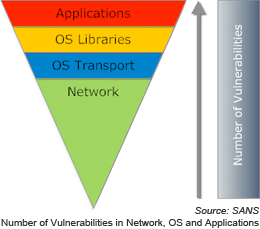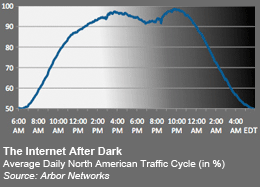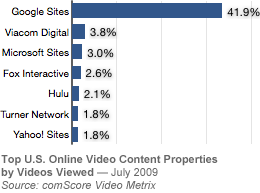

Contrary to previous security reports suggesting compromised machines remain infected for 6 weeks, experts at Trend Micro say these estimates are far from accurate. In its recent blog post the company said: "During the analysis of approximately 100 million compromised IP addresses, we identified that half of all IP addresses were infected for at least 300 days. That percentage rises to eighty percent if the minimum time is reduced to a month." Additionally the study also indicates that while three quarter of the IP addresses were linked to consumer users, the remaining quarter belonged to enterprise users. more
Security experts at RSA Research Lab have reported the discovery of a new type of phishing attack targeted against online banking customers that combines a typical phishing website with a live change session initiated by fraudsters. The technique dubbed "Chat-in-the-Middle" not only attempts to trick customers into entering their usernames and passwords into a phishing site but obtains further sensitive information (such as answers to secret questions used by banks to authenticate customers). According to the report, this attack is currently targeting a single U.S.-based financial institution, however operators of all online banking websites are cautioned. more
 According to a new security report released today by SANS Institute, TippingPoint and Qualys, the number of vulnerabilities found in applications in the last few years is far greater than the number of vulnerabilities discovered in operating systems. "On average, major organizations take at least twice as long to patch client-side vulnerabilities as they take to patch operating system vulnerabilities. In other words the highest priority risk is getting less attention than the lower priority risk." more
According to a new security report released today by SANS Institute, TippingPoint and Qualys, the number of vulnerabilities found in applications in the last few years is far greater than the number of vulnerabilities discovered in operating systems. "On average, major organizations take at least twice as long to patch client-side vulnerabilities as they take to patch operating system vulnerabilities. In other words the highest priority risk is getting less attention than the lower priority risk." more
An open letter from nearly 150 individual and organizational members of ICANN's Non-Commercial Users Constituency (NCUC) has been submitted to ICANN's board of directors and CEO. The letter has expresses serious concern over a recent ICANN Board decision regarding the restructuring of the Generic Names Supporting Organization (GNSO). From the letter: "We believe that the Noncommercial Stakeholder Group (NCSG) chartering process has been seriously flawed on both procedural and substantive grounds. We appeal to you to address these problems before permanent damage is done to ICANN's reputation, to the GNSO reform process, and to the interests of noncommercial users of the Internet." more
Over the next five years, the number of mobile cloud computing subscribers worldwide are expected to grow rapidly, "rising from 42.8 million subscribers in 2008, (approximately 1.1% of all mobile subscribers) to just over 998 million in 2014 (nearly 19%)," according to the latest study by ABI Research. "From 2008 through 2010, subscriber numbers will be driven by location-enabled services, particularly navigation and map applications. A total of 60% of the mobile Cloud application subscribers worldwide will use an application enabled by location during these years,” says senior analyst Mark Beccue. more
Ryan Tate of Valleywag writes: "After a five-and-a-half-year fight, Google and its attorneys have managed to convince federal bureaucrats to bestow a patent on the company's iconic home page. We always thought the page was brain-dead simple, but apparently it's an innovative 'graphical user interface. ...In other words, subject to how the patent is enforced, Google owns the idea of having a giant search box in the middle of the page, with two big buttons underneath and several small links nearby." more
 According to a recent research, European Internet traffic peaks in the early everning and drops off soon after until the next business day hours while in the United States, internet traffic reaches its peak at 11 p.m. EDT and stays relatively high until 3 a.m. in the morning. "The question is what are Internet users doing after dark?" Craig Labovitz of Arbor Networks reports. more
According to a recent research, European Internet traffic peaks in the early everning and drops off soon after until the next business day hours while in the United States, internet traffic reaches its peak at 11 p.m. EDT and stays relatively high until 3 a.m. in the morning. "The question is what are Internet users doing after dark?" Craig Labovitz of Arbor Networks reports. more
Milton Mueller, reporting today on the Internet Governance Project (IGP) website: "Although you may not have heard about it yet, there are plans afoot for an Internet Governance Forum for the U.S. The location has been set for Washington, DC at the Center for Strategic and International Studies. The date is set at October 2. The purpose of the affair is to debate, discuss and seek out common ground on some of the issues facing the global Internet Governance Forum operated by the United Nations, which will be held in Egypt November 15-18." more
 According to the latest report released by comScore for the month of July, 58 million U.S. Internet users watched online video during the month, the largest audience ever recorded. Online video reached another all-time high in July with a total of 21.4 billion videos viewed during the month, according to the report. YouTube.com accounted for more than 99 percent of all videos viewed while Viacom Digital ranked second with 812 million (3.8 percent) followed by Microsoft Sites with 631 million videos viewed (3.0 percent). more
According to the latest report released by comScore for the month of July, 58 million U.S. Internet users watched online video during the month, the largest audience ever recorded. Online video reached another all-time high in July with a total of 21.4 billion videos viewed during the month, according to the report. YouTube.com accounted for more than 99 percent of all videos viewed while Viacom Digital ranked second with 812 million (3.8 percent) followed by Microsoft Sites with 631 million videos viewed (3.0 percent). more
Domain names registered under United Arab Emirates' recently liberalized county code Top-Level Domain (.ae) have attracted such high level speculative interests that red flags have been raised within the country's regulatory agency. Domain names such as 'vip.ae' and 'vips.ae' registered only a little over a year ago are currently receiving multi-million dollar offers according to reports. Abu Dhabi's newspaper, The National, reported last week that the Telecommunications Regulatory Authority (TRA), the .ae administrator, has stated "registering a UAE domain with no intention other than to resell it could hurt the registrants if they are later accused of registering the site in bad faith, something forbidden by its rules." more
From MessageLabs' latest report: "Real Host, an ISP based in Riga, Latvia was alleged to be linked to command-and-control servers for infected botnet computers, as well as being linked to malicious websites, phishing websites and 'rogue' anti-virus products. Real Host was disconnected by its upstream providers on 1 August 2009. The impact was immediately felt, where spam volumes dropped briefly by as much as 38% in the subsequent 48-hour period. Much of this spam was linked to the Cutwail botnet, currently one of the largest botnets and responsible for approximately 15-20% of all spam. Its activity levels fell by as much as 90% when Real Host was taken offline, but quickly recovered in a matter of days." more
An apparently legitimate ISP in Tartu, Estonian is reported to have been serving as the operational headquarters of a large cybercrime network since 2005 according to TrendWatch, the security research arm of TrendMicro. "An Estonian company is actively administering a huge number of servers in numerous datacenters, which together form a network to commit cybercrime. It appears that the company from Tartu, Estonia controls everything from trying to lure Internet users to installing DNS changer Trojans by promising them special video content, and finally to exploiting victims' machines for fraud with the help of ads and fake virus infection warnings..." more
According to research by the Communications Workers of America (CWA), from 2007 to 2009, the average download Internet speed in the United States has increased by only 1.6 megabits per second (mbps), from 3.5 mbps in 2007 to 5.1 mbps in 2009. At this rate, CWA says it will take the U.S. 15 years to catch up with current Internet speeds in South Korea, the country with the fastest average Internet connections. "People in Japan can upload a high-definition video in 12 minutes, compared to a grueling 2.5 hours at the US average upload speed," says the report. more
US Federal Communications Commission (FCC) Chairman Julius Genachowski today reaffirmed his commitment to network neutrality and said that the FCC will go after anyone who violates its tenets. "One thing I would say so that there is no confusion out there is that this FCC will support net neutrality and will enforce any violation of net neutrality principles," said Genachowski told The Hill newspaper when asked what he could do in his position to keep the Internet fair, free and open to all Americans. more
According to a recent study on trends of disputed domain names, companies could save millions on legal costs by being more proactive about registering the names first. "The results indicate more than $220 million was spent on reclaiming domain names from third parties through the Uniform Domain Name Dispute Resolution Policy (UDRP)," says Corporation Service Company (CSC). "If brand owners had registered these domain names proactively, it would have only cost them $1.1 million (£600K), yielding a cost savings of $219 million." more
Sponsored byVerisign

Sponsored byIPv4.Global

Sponsored byRadix

Sponsored byDNIB.com

Sponsored byCSC

Sponsored byWhoisXML API

Sponsored byVerisign
